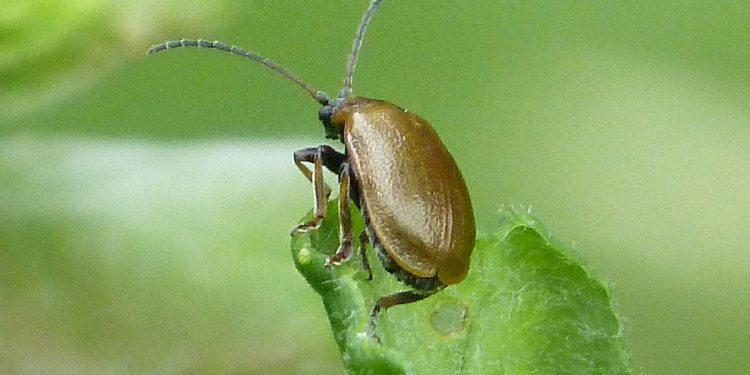#tags: #Chrysomelidae #Leafbeetles #Ecosystems #PestControl #IntegratedPestManagement #HabitatLoss #Conservation #EnvironmentalFactors
Leaf beetles, scientifically known as Chrysomelidae, are a diverse family of insects that play a vital role in the ecological balance of our planet. These small but mighty creatures can be found in almost every part of the world, from tropical rainforests to deserts and even in the Arctic. In this article, we will explore the importance of Chrysomelidae in our ecosystems and how their development has impacted the environment.
Chrysomelidae are herbivorous insects that feed on the leaves of various plants, including crops. While some species of leaf beetles can be considered pests, the majority of them play a crucial role in the natural food chain by controlling the growth of plants and preventing overconsumption. In addition, they also serve as a food source for many other animals, including birds and mammals.
The development of Chrysomelidae has been heavily influenced by environmental factors such as climate change, habitat loss, and pollution. These factors have caused a decline in their population in certain areas, which has led to imbalances in the ecosystem. However, researchers and conservationists have been working to understand the biology and behavior of these insects to protect their habitats and promote their growth.
One of the consequences of the development of Chrysomelidae is the impact they have on the agricultural industry. While some species of leaf beetles can damage crops, others can be used as natural pest control methods. This approach, known as integrated pest management, uses biological agents such as Chrysomelidae to reduce the use of chemical pesticides, which can be harmful to the environment and human health.
In conclusion, the study of Chrysomelidae is essential in understanding the role of insects in our ecosystems. These small but significant creatures contribute to the natural balance of our planet and play a vital role in maintaining a healthy environment. By promoting their growth and protecting their habitats, we can help ensure the continued development of these amazing creatures for generations to come.







